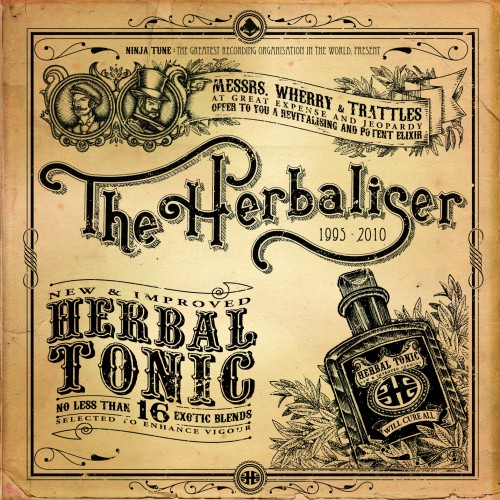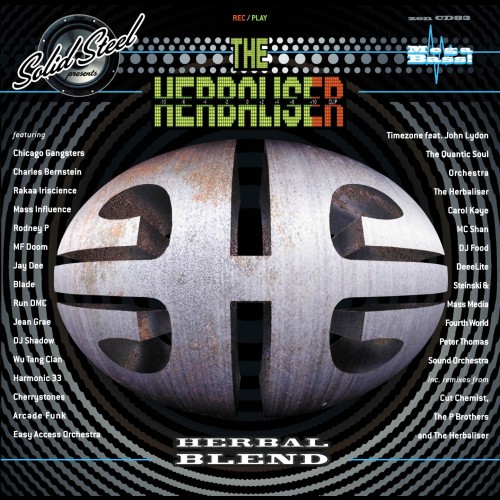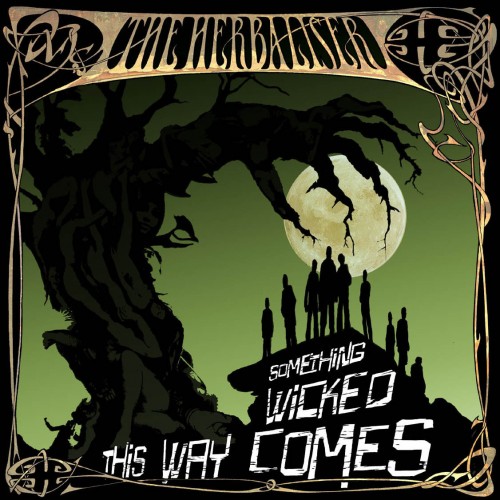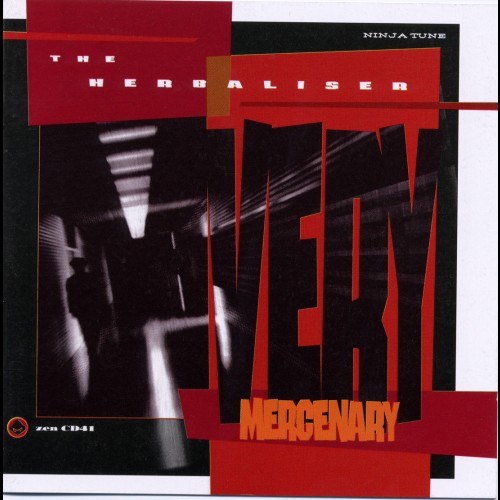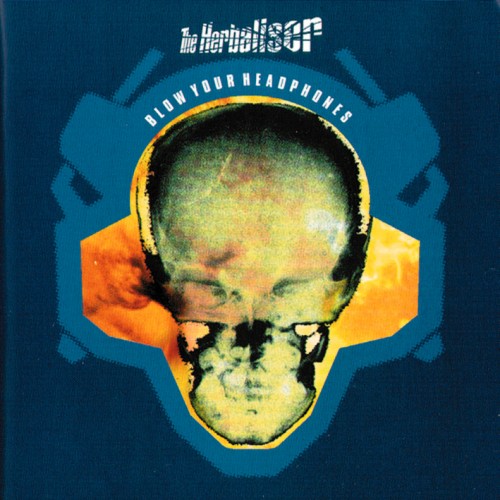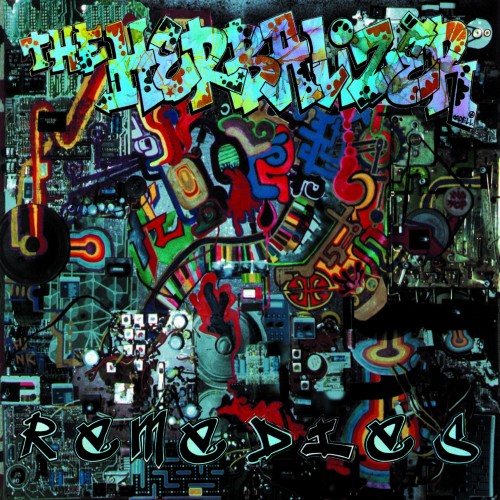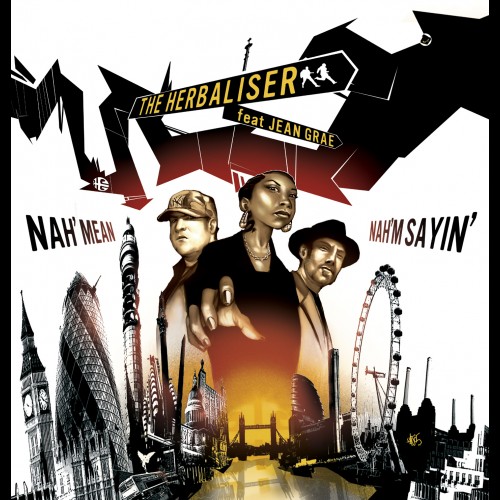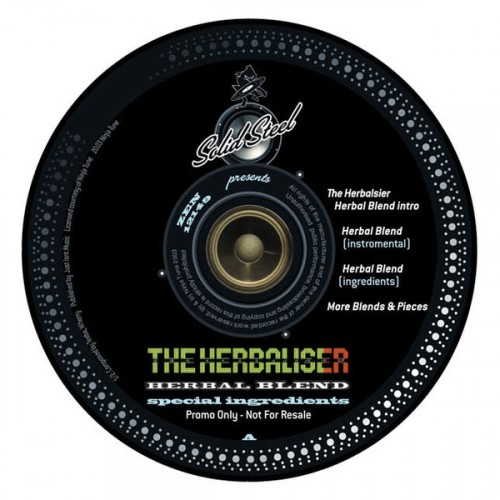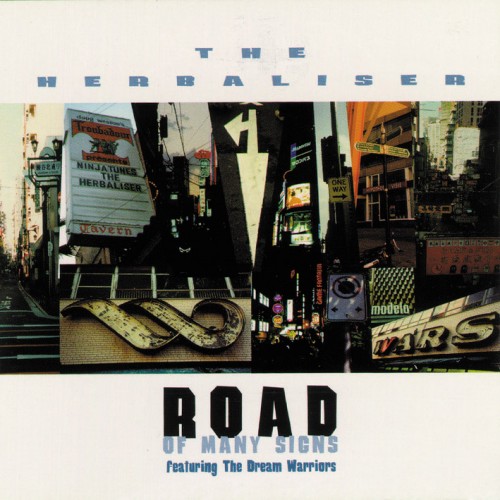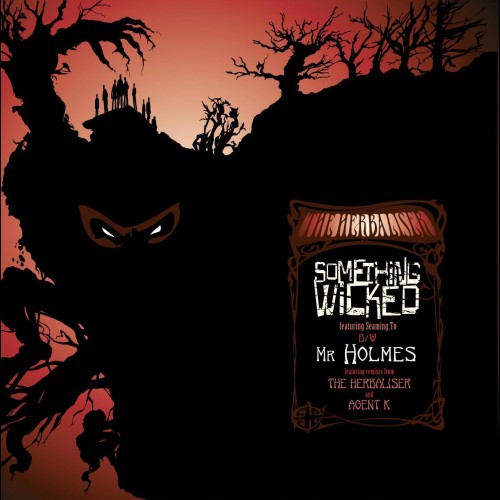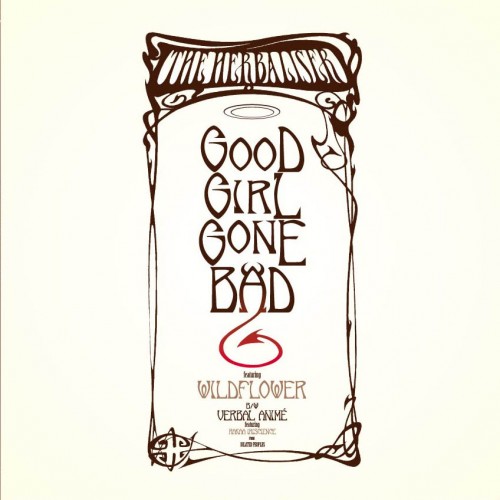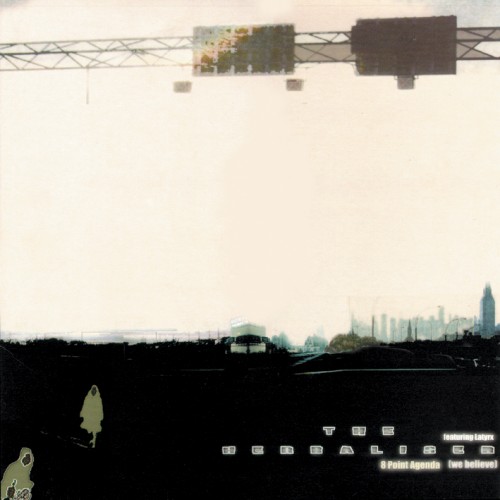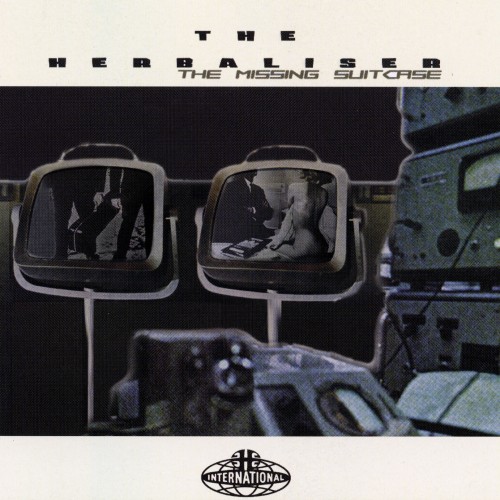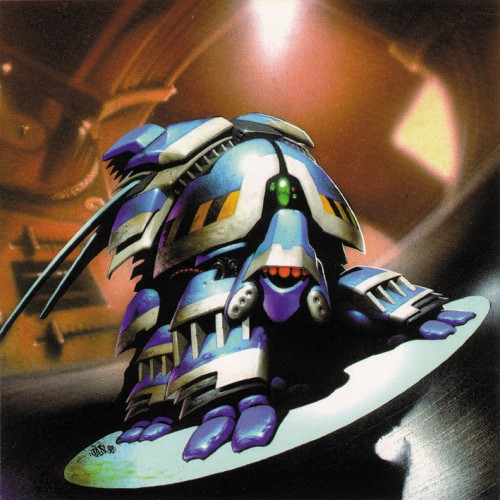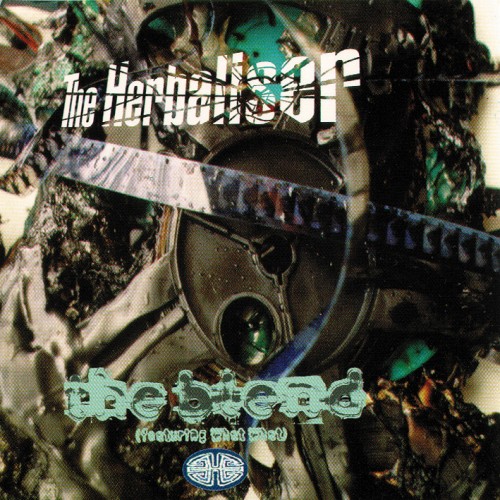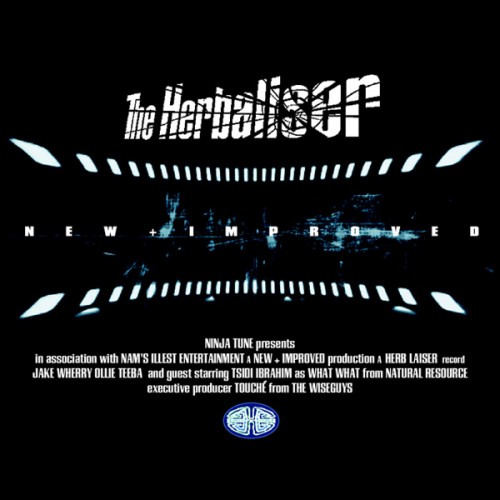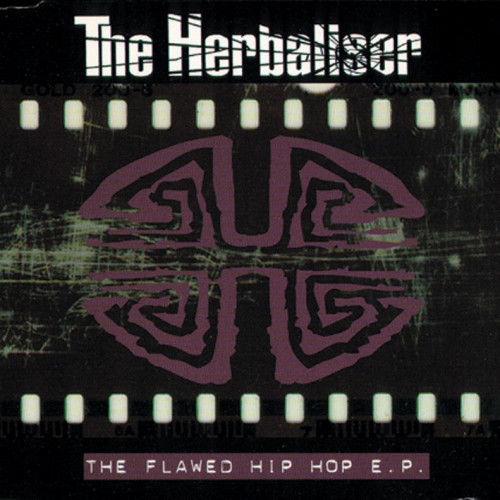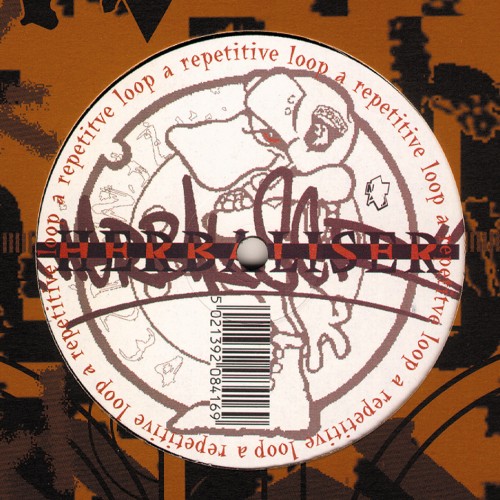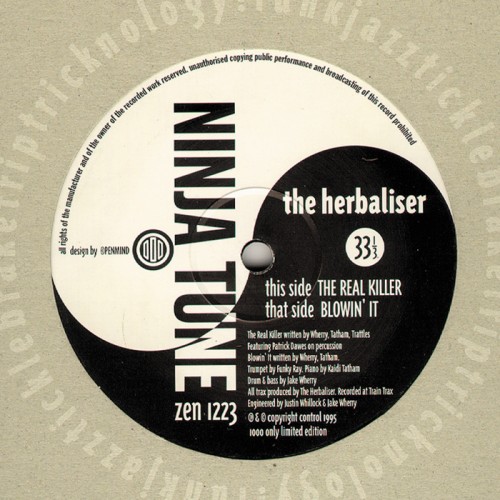
The Herbaliser
On Ninja Tune
BIOGRAPHY
It's not every day that you come across a duo like Jake Wherry and Ollie Teeba. They've been working together for over a decade and continue to progress and improve, to excel in the competitive world of hip hop production and beyond.Jake Wherry grew up in South West London. A diet of jazz and James Brown provided the soundtrack of his childhood and teenage years, before he naturally found himself getting into rare groove and old school hiphop and played guitar and b...
It's not every day that you come across a duo like Jake Wherry and Ollie Teeba. They've been working together for over a decade and continue to progress and improve, to excel in the competitive world of hip hop production and beyond.
Jake Wherry grew up in South West London. A diet of jazz and James Brown provided the soundtrack of his childhood and teenage years, before he naturally found himself getting into rare groove and old school hiphop and played guitar and bass in many jazz, funk and rock bands. Ollie Teeba, meanwhile, was strictly about the hip hop. He began DJing at 15, was playing out in London within a year and, in between, was to be found collecting sneakers.
Despite knowing of each other's rep at sixth form college it was only to be years later that they would convene at Jake's now legendary studio, Traintrax, to start their beat making careers. The guys immediately hit it off and began working on material of their own, utilising the skills of seminal collobrators DJ Malachi, Kaidi Tatham (Bugz In The Attic) and Ralph Lamb (Easy Access Orchestra). Wherry had played in school bands with PC (DJ Food) and when he heard the early Herbaliser demos, he was quick to introduce them to Ninja Tune; just in time for the mid-nineties explosion of hip hop jazz breaks.
As they explain: "Our instrumental style was born of a necessity to produce hip hop music, but without access to rappers we had to develop a new approach".
Their first album, the classic 'Remedies', was released by Ninja in October '95, a sharp hit of hard breaks, jazz sampledelia and funk, a record that could only have come out of the UK. 1997's 'Blow Your Headphones' added more vocals to the mix, in particular introducing the world (outside of the New York Underground scene) to the talents of What What (now Jean Grae).
Counteracting the prevalence of a couple of DJ's and a bongo player being the most common 'live' presentation of dance music, and inspired by the great funk bands of the previous decades, Wherry and Teeba decided it was time to take the musicians they worked with out on the road. With Tatham, Lamb and Patrick Dawes (percussion) already on board, it was a small step to making a seven piece whose blend of hip hop rawness and funk band tightness made them a major fixture at festivals across Europe.
The experience also caused Jake and Ollie to re-think the process of making a record. For 1999's 'Very Mercenary' they also began sampling their own playing partners, originating new grooves and then splicing them in the sampler as if they were off a piece dusty rare vinyl. It also featured a stellar cast of guests, What What this time being joined by Bahamadia, Blade, and Roots Manuva. But it was the musical breakthrough that fascinated them most and allowed them to indulge a love of sixties soundtrack and library records without merely chopping and looping the originals. Hence, whilst 'Something Wicked This Way Comes' (2002) featured another fantastic batch of guest vocalists, including MF Doom (long before his current deification) and Rakaa Iriscience (Dilated Peoples), it was as music that it really fascinated, a dark psych-funk underpinning being revealed.
The band went back out on the road and the record's commercial and critical success saw The Herbaliser rising to headline status at many key UK and EU festivals, with a live show that by now left most others for dead. Unsurprisingly, perhaps, the boys leapt at the chance to produce last year's "Solid Steel: Herbal Blend" mix and reassert their prime skills as mixers and hip hop heads. Meanwhile, their self-evident production chops got them gigs making music for everyone from Motorola to Guy Ritchie ('Snatch'), from PlayStation ('Tony Hawks Underground') to writing NFL's theme for the primetime 'Sunday Night Football' on ESPN.
All of which leads us to 'Take London'. As you'd expect, the record shows further refinement and expansion in sheer technique, while tracks like 'The Generals' show that the boys have lost none of their edge, or sheer enjoyment of fucked up, crazed hip hop tomfoolery. And talking of the Generals (the most unusual group to come out of US hip hop in a good few years), it's great to see this album putting back one woman centre stage. What What may have morphed into Jean Grae, but her skills have gone superhuman. But then The Herbaliser have always been about progression. That and being dope...
The Herbaliser
On Ninja Tune
Albums
Singles
Latest News
BIOGRAPHY
It's not every day that you come across a duo like Jake Wherry and Ollie Teeba. They've been working together for over a decade and continue to progress and improve, to excel in the competitive world of hip hop production and beyond.Jake Wherry grew up in South West London. A diet of jazz and James Brown provided the soundtrack of his childhood and teenage years, before he naturally found himself getting into rare groove and old school hiphop and played guitar and bass in many jazz, fu...
It's not every day that you come across a duo like Jake Wherry and Ollie Teeba. They've been working together for over a decade and continue to progress and improve, to excel in the competitive world of hip hop production and beyond.
Jake Wherry grew up in South West London. A diet of jazz and James Brown provided the soundtrack of his childhood and teenage years, before he naturally found himself getting into rare groove and old school hiphop and played guitar and bass in many jazz, funk and rock bands. Ollie Teeba, meanwhile, was strictly about the hip hop. He began DJing at 15, was playing out in London within a year and, in between, was to be found collecting sneakers.
Despite knowing of each other's rep at sixth form college it was only to be years later that they would convene at Jake's now legendary studio, Traintrax, to start their beat making careers. The guys immediately hit it off and began working on material of their own, utilising the skills of seminal collobrators DJ Malachi, Kaidi Tatham (Bugz In The Attic) and Ralph Lamb (Easy Access Orchestra). Wherry had played in school bands with PC (DJ Food) and when he heard the early Herbaliser demos, he was quick to introduce them to Ninja Tune; just in time for the mid-nineties explosion of hip hop jazz breaks.
As they explain: "Our instrumental style was born of a necessity to produce hip hop music, but without access to rappers we had to develop a new approach".
Their first album, the classic 'Remedies', was released by Ninja in October '95, a sharp hit of hard breaks, jazz sampledelia and funk, a record that could only have come out of the UK. 1997's 'Blow Your Headphones' added more vocals to the mix, in particular introducing the world (outside of the New York Underground scene) to the talents of What What (now Jean Grae).
Counteracting the prevalence of a couple of DJ's and a bongo player being the most common 'live' presentation of dance music, and inspired by the great funk bands of the previous decades, Wherry and Teeba decided it was time to take the musicians they worked with out on the road. With Tatham, Lamb and Patrick Dawes (percussion) already on board, it was a small step to making a seven piece whose blend of hip hop rawness and funk band tightness made them a major fixture at festivals across Europe.
The experience also caused Jake and Ollie to re-think the process of making a record. For 1999's 'Very Mercenary' they also began sampling their own playing partners, originating new grooves and then splicing them in the sampler as if they were off a piece dusty rare vinyl. It also featured a stellar cast of guests, What What this time being joined by Bahamadia, Blade, and Roots Manuva. But it was the musical breakthrough that fascinated them most and allowed them to indulge a love of sixties soundtrack and library records without merely chopping and looping the originals. Hence, whilst 'Something Wicked This Way Comes' (2002) featured another fantastic batch of guest vocalists, including MF Doom (long before his current deification) and Rakaa Iriscience (Dilated Peoples), it was as music that it really fascinated, a dark psych-funk underpinning being revealed.
The band went back out on the road and the record's commercial and critical success saw The Herbaliser rising to headline status at many key UK and EU festivals, with a live show that by now left most others for dead. Unsurprisingly, perhaps, the boys leapt at the chance to produce last year's "Solid Steel: Herbal Blend" mix and reassert their prime skills as mixers and hip hop heads. Meanwhile, their self-evident production chops got them gigs making music for everyone from Motorola to Guy Ritchie ('Snatch'), from PlayStation ('Tony Hawks Underground') to writing NFL's theme for the primetime 'Sunday Night Football' on ESPN.
All of which leads us to 'Take London'. As you'd expect, the record shows further refinement and expansion in sheer technique, while tracks like 'The Generals' show that the boys have lost none of their edge, or sheer enjoyment of fucked up, crazed hip hop tomfoolery. And talking of the Generals (the most unusual group to come out of US hip hop in a good few years), it's great to see this album putting back one woman centre stage. What What may have morphed into Jean Grae, but her skills have gone superhuman. But then The Herbaliser have always been about progression. That and being dope...

